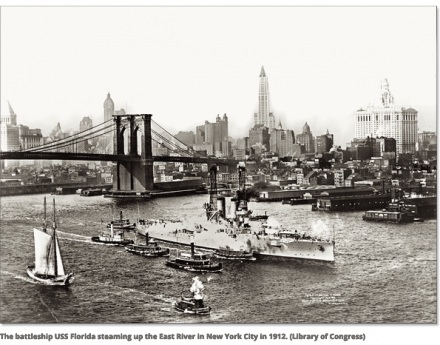
Since April, 239days.com has been chronicling the visit to America and Canada by a Persian traveler who, from today’s vantage point, can be regarded as the most obscure, well-known Iranian of the early twentieth century.
Exiled from his native land, he spoke highly of Persia. Targeted by zealots, he defended Islam in churches and synagogues. The diverse discourses he covered in letters, essays and talks add to his enigma. Modernity and identity, child education and progress, the role of religion in society and gender relations are among his treatise. And yet his prose has remained unread, his thoughts unexplored, and his example unknown to many Iranians, to the chagrin of the elite and the lowly who crossed paths with him in the west one hundred years ago.
Once released after decades of incarceration under the Persian and Ottoman rules, ‘Abdu’l-Bahá (1844-1921), the son of the founder of the Bahá’í Faith, toured North America from 11 April to 5 December 1912. The sixty-six year old commanded a tireless stride, with which 239days.com keeps up not with dry, mundane write-ups, but with happy narratives punctuated by news headlines and international affairs pieces of the period. Thanks to such postings, expansive articles sporting a crisp prose and a sleek font, something akin to a zeitgeist is developing that stands above emotionalism or hagiography. It brings out the cadence of the material and the spiritual in one splash. But why is it that many of us Iranians – whether Moslem, atheist, or in-between, among other flavours – are at best dimly aware of this figure?
Reflecting on hegemony and restrictions, Shahrnoush Parsipour, who endured censorship and interrogation both before and after 1979, laments the prevailing culture of elimination, farhang-e hazf, in her land of birth. In his shocking but unassuming Jameh Shenasi Khodemani (Casual Sociology), Hasan Naraqi pulls no punches and critiques Iranians for not knowing their own history and as a result repeating the same historical mistakes. When we do not keep (hefz) one of our own, we seek out outside. Our foremost living novelist Mahmoud Dolatabadi wistfully offers in an interview, “shame on me for reading Nietzsche”, and furthers, “one of my regrets is why this society could not keep Sadeq Hedayat so that those like me could lean on him.”
What happens when this culture of elimination gives way to a culture of preservation or, more aptly, a culture of illumination? In this new light, which does not entail an eschatological ending or a utopian society but a gradual change in habits of thought, Iran’s Afghani population would not be so readily banned from a public park in the city of Isfahan. That is a city once – a few centuries ago, not a long time in our ancient history – carried the prestigious appellation of “Half the World”,
Esfahan nesf-e jahan,
for its cosmopolitan spirit.






